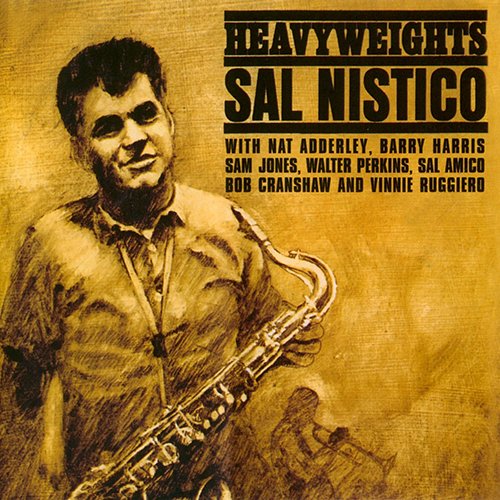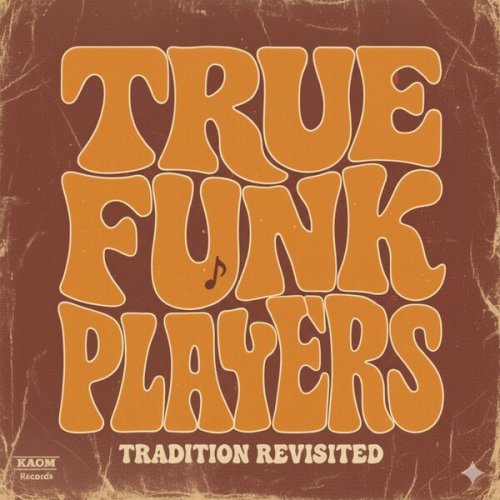Sal Nistico - Heavyweights (2002)

Artist: Sal Nistico
Title: Heavyweights
Year Of Release: 2002
Label: Jazzland/Riverside/Milestone
Genre: Post-Bop, Jazz
Quality: FLAC (tracks+.cue,log,scans)
Total Time: 75:14
Total Size: 450 MB
WebSite: Album Preview
Tracklist:Title: Heavyweights
Year Of Release: 2002
Label: Jazzland/Riverside/Milestone
Genre: Post-Bop, Jazz
Quality: FLAC (tracks+.cue,log,scans)
Total Time: 75:14
Total Size: 450 MB
WebSite: Album Preview
01. Mamblue (5:44)
02. Seconds, Anyone? (3:59)
03. My Old Flame (6:47)
04. Shoutin' (5:20)
05. Au Privave (6:10)
06. Heavyweights (5:43)
07. Cheryl (4:54)
08. Ariescene (5:55)
09. By Myself (6:01)
10. Samicotico (4:30)
11. Comin' On Up (5:27)
12. Easy Living (6:49)
13. Down (7:55)
Personnel on tracks 1-6:
Sal Nistico - tenor saxophone
Nat Adderley - cornet (1, 2, 4-6)
Barry Harris - piano
Sam Jones - bass
Walter Perkins - drums
Personnel on tracks 7-13:
Sal Nistico - tenor saxophone
Sal Amico - trumpet (7-11, 13)
Barry Harris - piano
Bob Cranshaw - bass
Vinnie Ruggiero - drums
Not every young tenor saxophonist who started recording as a leader in the early '60s took the modal post-bop plunge or explored avant-garde free jazz. Sal Nistico, for example, was very much a '40s/'50s-style bebopper, and his primary influences were Charlie Parker, Sonny Rollins, Sonny Stitt, and early Gene Ammons. Assembled by Fantasy in 2002, this 75-minute CD contains two albums that Orrin Keepnews produced for Nistico in the early '60s: 1961's Heavyweights (the saxman's first album as a leader) and 1962's Comin' on Up.
The original LPs came out on different labels – Keepnews produced Heavyweights for Jazzland and Comin' on Up for Riverside – but Fantasy released this disc on Milestone. Comin' on Up is heard in its entirety, although one track from Heavyweights (a performance of the standard "Just Friends") was deleted. Nistico is joined by pianist Barry Harris on both albums, but while Heavyweights boasts Nat Adderley on cornet, Sam Jones on bass, and Walter Perkins on drums, Comin' on Up employs Sal Amico on trumpet, Bob Cranshaw on bass, and Vinnie Ruggiero on drums. Nonetheless, the two albums are quite similar. Both are examples of pure, unadulterated bop, and Nistico is as appealing on original songs (which include "Comin' on Up," "Seconds, Anyone?," and "Samicotico") as he is on interpretations of Miles Davis' "Down" and two Parker standards: "Cheryl" and "Au Privave." Although Parker was primarily an alto saxophonist and Nistico's main instrument was the tenor (from 1956 on), there was always plenty of Bird in Nistico's phrasing; in fact, Nistico sometimes recalls the session that Bird recorded on tenor in 1947. Nonetheless, Nistico was a talented player in his own right, and this Heavyweights/Comin' on Up reissue makes one wish that he had recorded more albums as a leader in the '60s.
The original LPs came out on different labels – Keepnews produced Heavyweights for Jazzland and Comin' on Up for Riverside – but Fantasy released this disc on Milestone. Comin' on Up is heard in its entirety, although one track from Heavyweights (a performance of the standard "Just Friends") was deleted. Nistico is joined by pianist Barry Harris on both albums, but while Heavyweights boasts Nat Adderley on cornet, Sam Jones on bass, and Walter Perkins on drums, Comin' on Up employs Sal Amico on trumpet, Bob Cranshaw on bass, and Vinnie Ruggiero on drums. Nonetheless, the two albums are quite similar. Both are examples of pure, unadulterated bop, and Nistico is as appealing on original songs (which include "Comin' on Up," "Seconds, Anyone?," and "Samicotico") as he is on interpretations of Miles Davis' "Down" and two Parker standards: "Cheryl" and "Au Privave." Although Parker was primarily an alto saxophonist and Nistico's main instrument was the tenor (from 1956 on), there was always plenty of Bird in Nistico's phrasing; in fact, Nistico sometimes recalls the session that Bird recorded on tenor in 1947. Nonetheless, Nistico was a talented player in his own right, and this Heavyweights/Comin' on Up reissue makes one wish that he had recorded more albums as a leader in the '60s.







![Larry Coryell - Major Jazz Minor Blues (1998) [CDRip] Larry Coryell - Major Jazz Minor Blues (1998) [CDRip]](https://www.dibpic.com/uploads/posts/2026-02/1771860317_5.jpg)
![The Messthetics & James Brandon Lewis - Deface The Currency (2026) [Hi-Res] The Messthetics & James Brandon Lewis - Deface The Currency (2026) [Hi-Res]](https://www.dibpic.com/uploads/posts/2026-02/1771424652_1.jpg)